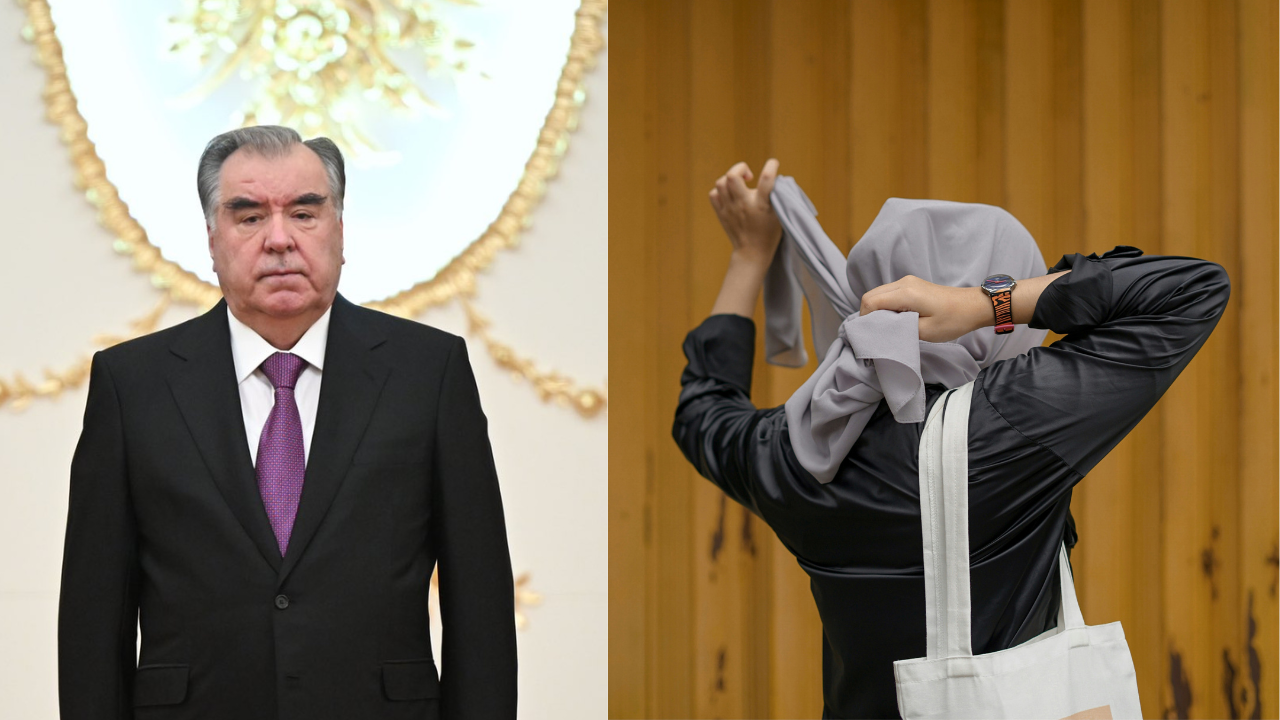Updated Jun 21, 2024, 01:50 IST
The bill was passed in the lower house of the Tajik parliament earlier on June 9. It will ban the wearing, importing, selling and advertising of “clothes alien to Tajik culture,” a term widely used by officials in the country to describe Islamic clothing.
(Photo: X/ @IndEmbDushanbe and Unsplash)
The upper house of the Tajikistan parliament called the Majlisi Milli approved a draft bill on June 19 (Wednesday) formally banning hijab for Muslim women in the country. Radio Liberty Europe reported the major update, saying that Emomali Rahmon-led Tajik government passed the bill which bans ‘alien garments’ as well as celebration by children during two major Muslim festivals – Eid al-Fitr and Eid Al-Adha.
The bill was passed in the lower house of the Tajik parliament earlier on June 9. It will ban the wearing, importing, selling and advertising of “clothes alien to Tajik culture,” a term widely used by officials in the country to describe Islamic clothing.
Penalties for offenders range from approximately $740 for individuals to $5,400 for legal entities. Government officials and religious authorities face significantly higher fines, with penalties of $3,700 and $5,060, respectively, if found guilty.
Read Full Article
The draft bill is expected to be signed into law by President Rahmon soon.
“The amended version of the draft law includes a ban on clothes deemed foreign to Tajik culture,” Tajik lawmaker Mavloudakhon Mirzoyeva said.
The history of putting restrictions on Islamic culture and efforts to promote Tajik culture is not new. The clampdown on the hijab began in 2007, extending to all public institutions and leading to market raids and street fines. Authorities have promoted national dress, sending messages in 2017 urging women to wear Tajik clothes and also released a 376-page guidebook on recommended outfits, according to the Middle East Monitor.
Tajikistan has also unofficially banned beards, with thousands of men reportedly having their beards forcibly shaved by police over the past decade.
Per the Radio Liberty report, many residents in Dushanbe, the capital of Tajikistan, have expressed that they don’t support a ban on certain types of clothes because they believe people should be free to choose what clothes they want to wear.




